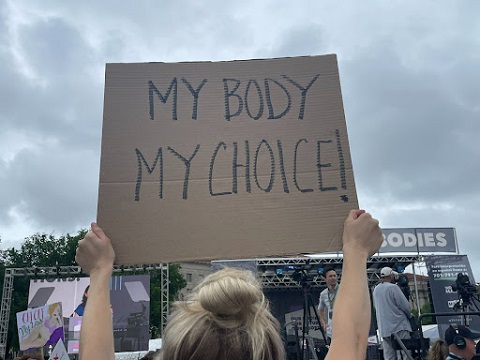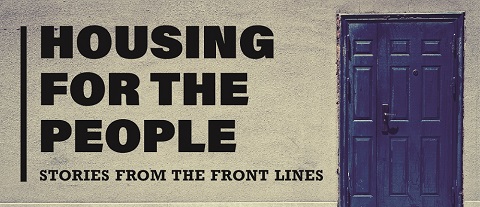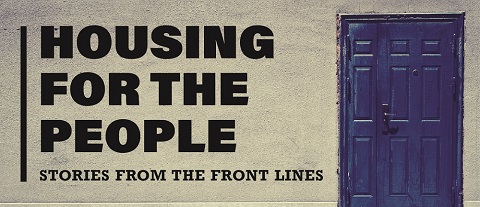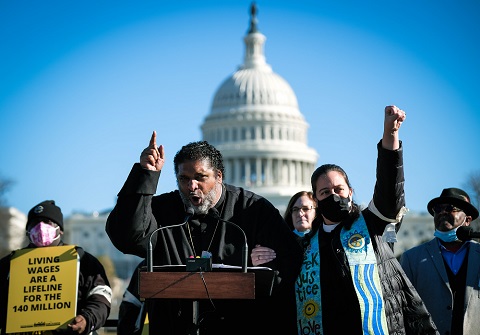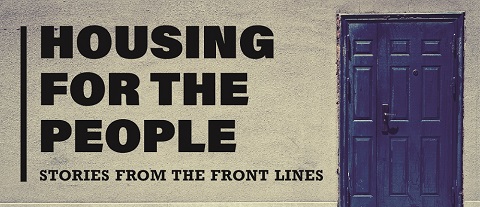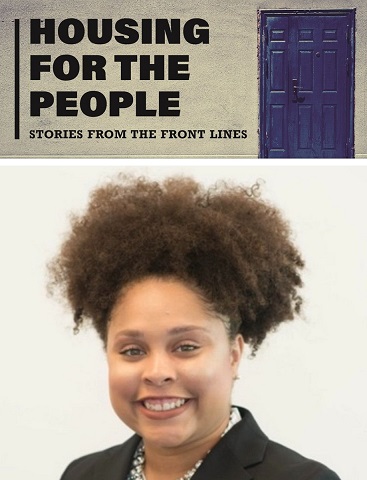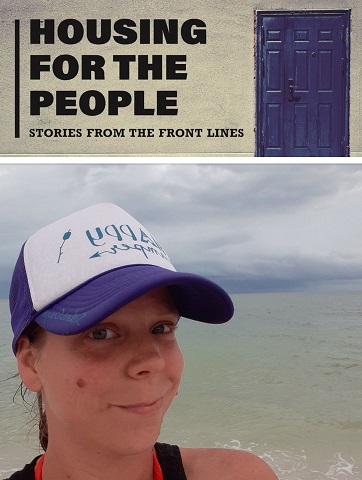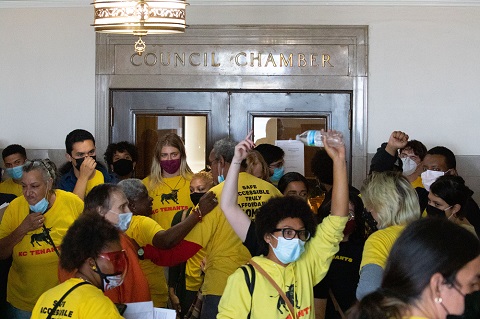Interview by Darryl Lorenzo Wellington
America is ready for a national conversation and action on housing. Despite the lack of debate around national housing policies, people nationwide see a clear role for government, to provide solutions and policies that assures that all of us have a place to call home. It is time for a transformative federal housing agenda that not only reasserts the federal role in housing, but also fundamentally reframes and reimagines that role to be centered on racial equity, increasing opportunity, and guaranteeing homes for all.
The Housing Playbook Project, co-chaired by Dorian Warren of Community Change, Maria Torres-Springer of the Ford Foundation, and Former HUD Secretary Julian Castro, has launched a New Deal For Housing Justice – a set of policy recommendations for the new administration and Congress.
This Q&A is the first in a series of pieces we will be publishing where we will talk about why the Housing Playbook is so crucial. The series is made possible in partnership with Community Change and the International Network of Street Papers North America.
Andreanecia M. Morris serves as the executive director for HousingNOLA and advisory committee member for the Housing Playbook Project. A graduate of Loyola University New Orleans and the University of New Hampshire Carsey School of Public Policy, Morris has worked to create affordable housing opportunities in the Greater New Orleans Area in both the public and private sector. Morris spearheaded the HousingNOLA 10-year Strategy and Implementation Plan in 2015 that indicated the need for 33,600 additional affordable units in the city by 2025. Morris recently collaborated with Community Change on the Housing Playbook’s New Deal for Housing Justice, outlining a bold approach to immediate and long term housing security and affordability for all.
![Andreanecia M. Morris serves as the Executive Director for HousingNOLA and advisory committee member for the Housing Playbook Project. [Courtesy of Community Change]](https://hub.insp.ngo/wp-content/uploads/2021/02/INSP_Housing-playbook-QA_1-1.jpg)
Darryl Lorenzo Wellington: What is the Housing Playbook’s New Deal for Housing Justice?
Andreanecia M. Morris: The Playbook dares to demand that the Biden-Harris administration and Congress create a system that will guarantee housing for all. Discriminatory housing policy has tricked us into thinking that housing is something that people should earn rather than have as a basic need. That blind spot has prevented us from seeing that safe and affordable housing is the foundation for addressing many social justice issues. Bold federal action on housing is imperative for any meaningful strategy to get us through COVID-19 and rebuild our devastated economy.
Why is the nation facing a housing crisis? Is it just because of the COVID-19 pandemic?
While there are myriad issues – rent increases, the financial crisis, COVID – those are all symptoms of a racialized and gendered bias towards housing that traps people who are housing insecure between stereotypes like the Welfare Queen, and the so-called “worthy poor.” Instead of guaranteeing housing, we spend millions of dollars on programs that have little to no effect on systemic changes to our discriminatory system. The problem isn’t because those programs don’t work, but because they are over-designed, under-capitalized and poorly-executed. One of the challenges with dealing with the affordable housing crisis is the fact that some people don’t understand that this affects everyone. The biases many people have lets many middle-class homeowners convince themselves that they are immune. But this pandemic has changed that — many more people have seen just how close they are to losing their home when emergency strikes.
What policies are you pushing the Biden-Harris Administration to put into action to improve this crisis?
The Biden-Harris administration, including the incoming Housing and Urban Development Secretary, and Congress have the power to act immediately on many of the proposals in this playbook so that we can start to realize the vision of housing justice within the first 200 days. President Biden’s budget should reflect his promise to prioritize economic and racial justice, including investments in public housing and housing trust funds that could provide the stability we need, not just for survival through the pandemic, but for long term economic prosperity for all of our families. The Housing Playbook gives the Biden-Harris administration a roadmap to centering racial justice in housing policy — something they’ve expressed is a priority.
And there are a number of administrative actions that can be taken right away, including establishing a Presidential Commission on Reparations to Black people for a legacy of anti-Black federal housing that gives people who have experienced housing insecurity or homelessness a seat at the table.

Is fair housing and affordable housing a racial justice issue?
Absolutely. We can debate all of the issues of this recent election, but the reality is, affordable housing is the issue that affects all the others. If we continue to fail to create stable and affordable homes in neighborhoods where people feel safe, there will always be crime, there will always be sickness and there will always be uncertainty.
Our current crisis is a result of policies that systematically discriminate against women, people who struggle to make ends meet, Black, Brown, immigrant and LGBTQ+ families. To undo and provide redress for this harm requires policies rooted in equity, that combat systemic racism, sexism and xenophobia, and come from those who have expertise through lived experience. That’s what this playbook offers.
How can people – especially people who have been homeless or who experienced housing insecurity – help change the system? Do they have a contribution to make?
Affordable housing is not a political platform, or party issue. It should be a basic human right—it should be guaranteed. As a result of political pandering, and general disregard for our people, the affordable housing crisis in cities like New Orleans and most of the country continues to perpetuate. With the needs of so many being blatantly disregarded to indulge the needs of a few, we have pushed thousands of hard-working, long-term out of their communities. But we can come together and organize to hold those elected officials accountable and demand that they #PutHousingFirst. The Housing Playbook was created with those who have experienced housing insecurity or homelessness, not for them.
Darryl Lorenzo Wellington is a communications fellow with Community Change.






